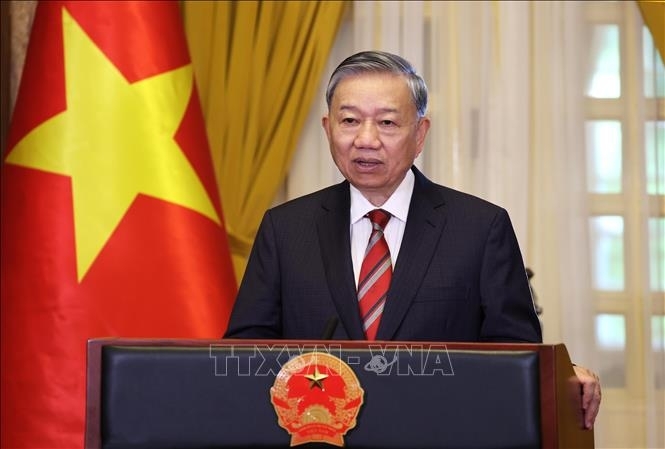MobiFone Ownership Transfer Enhances Vietnam's National Security
Discover how MobiFone's ownership transfer to the Ministry of Public Security strengthens Vietnam's asset management and enhances national security initiatives.

Key Points
- The Vietnamese government has transferred MobiFone
’s ownership to the Ministry of Public Security to enhance efficiency in state asset management.
- This strategic move aims to align MobiFone more closely with national security objectives while addressing concerns about corruption and mismanagement.
- MobiFone has shown strong financial performance and is adapting its services towards digital transformation, indicating growth potential under new oversight.
On February 27, the Vietnamese government made a significant decision: the transfer of state ownership rights of MobiFone Telecommunications Corporation from the State Capital Management Committee to the Ministry of Public Security. This strategic shift marks a new chapter in MobiFone’s history and reflects the government's commitment to enhancing the efficiency of state capital management.
Understanding the Transfer
The clear directive from Deputy Prime Minister Hồ Đức Phớc emphasizes the importance of adhering to legal frameworks while ensuring that the management of state assets is both efficient and transparent. This transition not only streamlines administrative processes but also aims to mitigate risks associated with corruption and mismanagement.
MobiFone, established in 1993 as Vietnam's first mobile network operator, has undergone several transformations. Originally known as VMS—Vietnam's first mobile information company—it evolved into a corporation and has been under various management structures over the years. The most recent transfer signifies a deeper integration into national security infrastructure, recognizing the critical role of telecommunications in national stability.

A New Phase in MobiFone's Journey
This transition to the Ministry of Public Security comes amidst significant changes within the government’s organizational structure. With the dissolution of the State Capital Management Committee's operational authority, several large corporations, including MobiFone, are now under different ministries that can provide more specialized oversight. This move aims to enhance the resilience of state-owned enterprises while aligning them more closely with the objectives of national security and efficient governance.
MobiFone’s market position has fluctuated throughout its 32 years of operation. In recent evaluations, it held approximately 17.9% of the mobile telecommunications market, putting it in third place behind its competitors,
and VNPT. Yet, the corporation has shown resilience and adaptability, reporting profits exceeding 2 trillion VND last year, surpassing budget expectations by 56.7%. Furthermore, the company has been pivoting towards digital transformation, with remarkable growth in services like MobiFone Meet and Cloud, which reflect the evolving demands of technology and telecommunications.

Strategic Implications for the Future
As MobiFone transitions into this new organizational framework, the implications are profound. The government's strategy to transfer oversight to the Ministry of Public Security underscores a recognition of the vital role telecommunications play not just in the economy but also in national security. This move is a proactive measure to ensure that state-owned enterprises align more closely with government-wide initiatives aimed at improving security and accountability.
The Ministry's involvement is also likely to influence MobiFone's future strategy in digital service offering and cybersecurity, areas that are becoming increasingly critical as the nation advances in its technological capabilities. As seen with MobiFone’s strong financial performance, these adjustments can potentially unlock new pathways for innovation and operational efficiency.
MobiFone's integration into this new framework can serve as a model for other state-owned enterprises facing similar restructurings. The success of MobiFone may inspire confidence in the government's ability to manage state-owned companies effectively while still adhering to principles of transparency and accountability.
Ultimately, the transition of MobiFone’s ownership to the Ministry of Public Security represents a thoughtful realignment in the governance of state assets, aiming to foster better management and a commitment to ethical practices. As MobiFone embarks on this new journey under the auspices of the Ministry, the prospects for growth and innovation remain promising.


